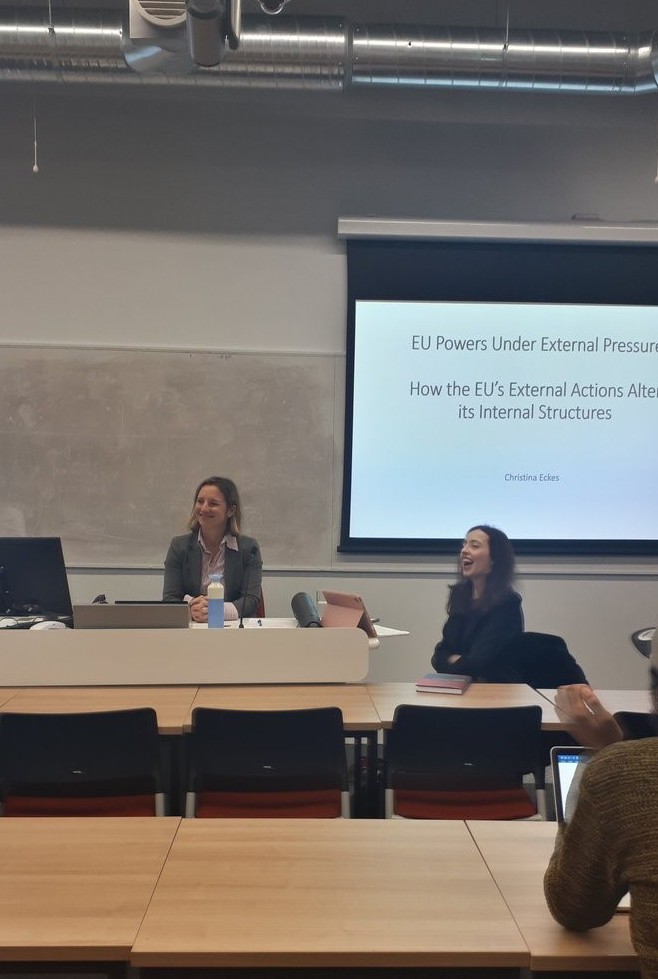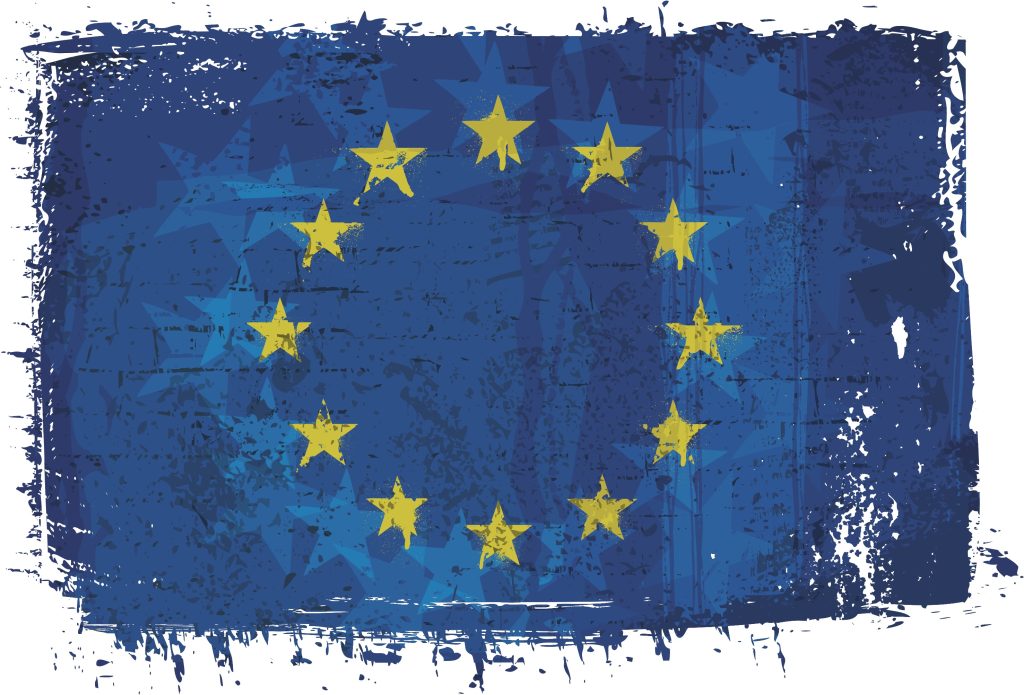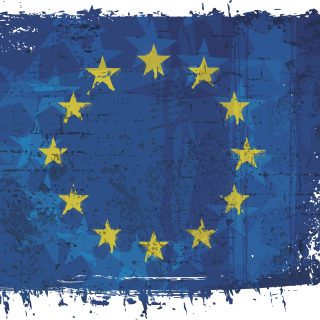On Wednesday 13 November, Professor Christina Eckes from the University of Amsterdam, came to City Law School to discuss her recently published monograph ‘EU Powers Under External Pressure: How the EU’s External Actions Alter its Internal Structures’. The presentation revolved around three key aspects influencing the EU’s external actions: EU loyalty, the institutional powers in external relations and international courts or tribunals.

The Speaker: Professor Christina Eckes
A professor of European law at the University of Amsterdam and director of the Amsterdam Centre for European Law and Governance (ACELG). Her research is centred on the integration and disintegration dynamics in EU law.
Chair: Dr Maria Kendrick
Dr Kendrick chaired her first Institute for the Study of European Laws (ISEL) event. She is a lecturer in EU and Human Rights Law in the UK. Her research interests are in EU law and Public law, specifically on the differentiated integration in the EU.
Dr Kendrick’s questions focused on the legal basis of the EU’s actions.
Here are Dr Kendrick’s thoughts on the event:
“[The event] was interesting because not a lot of research is done on the importance of the legal basis of EU’s external actions”
EU Loyalty
The principle of EU loyalty is broadly defined as member states accepting the common cause whereby any deviation would invoke the duty. The underpinnings of the EU are reinforced in which the member states must agree for the principle to be effective. This principle is more stringently applied when member states act externally, rather than internally. Federal states do not appear to act on the international plane with exclusive competence. An analogous example Professor Eckes used is the Bundestreue in Germany where the federal states of Germany are under an obligation to act in good faith, where they cannot violate the interests of other federal states. Surprisingly even when no harm occurs, a violation of EU loyalty can still be found, illustrating its significance in external matters. EU loyalty ensures the future acts of the EU are protected. Professor Eckes argues the EU is a weak international actor as the EU cannot claim the same rights as Member States, which could be the reason why the EU sometimes acts as a state on the international plane.

Institutional Powers in External Relations
Professor Eckes used the term ‘structures of bonding’, to describe the principles and rules that create a connection between citizens and the EU and its institutions. This helps us understand how citizens identify with the EU. For example, the European Parliament represents a Union of citizens where Members of the European Parliament (MEPs) usually vote with their conscience and are not constrained by party lines, unlike national parliaments where party discipline is stronger.

When it comes to concluding international agreements, the power is shifted to the executive, which in the case of the EU, is the Council and Commission. However, the European Parliament has flexed its muscles in the post-Lisbon era.
The European Parliament has been given the power to consent to international agreements and the right to be informed during all stages of the international agreement under Article 218(6) TFEU and Article 218(10) TFEU respectively. This demonstrates the legitimacy of international agreements between the EU and third parties and, in external relations, the European Parliament is more powerful than national parliaments.
International Courts or Tribunals (ICTs)
The autonomy of the EU legal order has become the main obstacle to overcome in respect to the status of ICTs. The CJEU has shown concern about the superiority of its own position when it comes to the EU joining international organisations with their own international legal system, for example, the Council of Europe.
Finally, Professor Eckes posed this question: ‘should Member States still be visible and have a voice in the 21st century?’ This question may cause contention among commentators as it effectively implies that, in the external sphere, the EU member states acting in isolation may undermine EU policy.
Reflections
Although the event was a brief snapshot of the EU’s external relations, the presentation was insightful and informative. Firstly, the EU’s external actions present dilemmas over the constitutional nature of the EU and secondly, for the European Parliament to be involved in international agreements increases the reputation of the European Parliament as a powerful institution. The monograph provides a comprehensive outline of the EU’s external relations and the consequences.

Thank you to ISEL for hosting this event! Follow ISEL on Twitter at @CityLaw_ISEL for more information on upcoming events.
Many thanks to Cristina de Souza for this helpful breakdown of a talk in a challenging area! Cristina is a final year LLB student at City and one of this year’s fantastic Lawbore journalist team.

